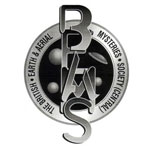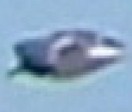After six years of agonising pain, Ailsa Marsh was beginning to despair that she would ever lead a normal life again. 'I was bedridden and couldn't leave the house,' recalls the 28-year-old student.
'All of my senses became hypersensitive. If somebody spoke to me, it felt as if they were shouting. I couldn't bear the light so my parents hung duvets over the windows. Even lying in bed was painful.'
Ailsa's suffering began in 1998 following a bout of glandular fever. At the time she was a politics and philosophy student at Durham University. But the disease robbed her of drive and energy, eventually forcing her to return home to her parents in Newcastle.
Over the following months she became weaker and weaker and was eventually diagnosed with ME. Conventional medicine offered no hope. Ailsa saw more than 20 doctors and was hospitalised countless times. The doctors could find no cause for the ME and could offer no cure.
Then in January 2004, quite by chance, Ailsa read an article about the spiritual healer David Cunningham. 'I'd tried everything else,' she says, 'so I thought I might as well go and see him.
'I didn't know what to expect, but he listened intently to me for half an hour and then put on a tape of soothing music.
'As I began to relax, David placed his hands about a centimetre above my shoulders. I felt as if he was putting his hands inside me and untwisting a tap. The pain just vanished - it went in an instant. That day, I left David with more energy than I'd had in six years.'
Over the following four months, Ailsa returned every week. Within a few months she was able to go shopping and walk from one side of Newcastle to the other.
'That summer, I went on a family holiday and there's pictures of me doing handstands in the sea. I'd gone from being in a wheelchair to being able to do all the normal things a woman of my age could do.'
Although Ailsa is utterly convinced that David Cunningham cured her of ME, many others are sceptical. How can a man with no medical training treat a chronic painful disease merely by placing his hands over a patient's body? For decades, researchers have dismissed cases such as Ailsa's as pure hokum.
But now, in an astonishing about-turn, scientists in the U.S. and UK have compiled a dossier of evidence that might - just might - show that prayer and spiritual healing are not just quackery after all.
Professor Harald Walach, a psychologist from the University of Northampton, says:
'We should take this phenomenon seriously even if we don't understand it. To ignore it would be unscientific. Our work shows that there is a significant effect.'
For despite it being the most widely practised alternative remedy, science has only recently begun to investigate whether spiritual healing actually works. Scientists and doctors simply assumed that it didn't.
One of the first attempts to investigate healing focused on its flipside: the curse. In the late 1960s, U.S. scientists decided to see whether focusing vindictive and negative thoughts on a small sample of mould - chosen because it is one of the most primitive living organisms - could somehow inhibit its growth.
Astonishingly, out of 194 mould samples 'cursed', 151 showed retarded growth.
Another group of scientists began researching whether thought power alone could be used in a positive way, to help diseased animals. Experiments revealed that mice wake faster after a general anaesthetic if healing thoughts are 'sent' their way.
In other studies, mice recovered faster and more completely from a form of breast cancer if healers 'laid on hands' while sending them positive thoughts and energy.
So if healing helps ailing lab animals, might it also help the sick to recover faster? Surprising as it seems, there's growing evidence that it might.
According to cardiologist Dr Randolph Byrd at San Francisco General Hospital, heart patients who are prayed for by Christian groups need less medicine and suffer fewer complications.
Other scientists have found similarly inexplicable results. In virtually every area they have looked, scientists have found evidence that praying for the sick helps them recover faster.
For example, studies at the California Pacific Medical Centre on Aids patients found that they survive in greater numbers, become sick less often and recover faster than those who are not prayed for.
Professor Walach, a psychologist at the University of Northampton, recently conducted an exhaustive analysis of all the data and came to the conclusion that spiritual healing really does work. He is gaining powerful supporters, too.
Professor Peter Fen-wick, a consultant neuro-psychiatrist at King's College London, has studied the phenomenon and says: 'There are four possibilities.
'Either we're dealing with fraud on a massive scale; or large numbers of able and gifted researchers are simply wrong; or hundreds of reports disproving healing haven't been published. All these seem unlikely, so we're left with the possibility that the effect is real.'
'Now we need to move on and understand what "healing" is and how it works. And we're starting to do just that.'
Dean Radin, a parapsychologist working at the Institute of Noetic Sciences in California, is in the vanguard of this research. He has found compelling evidence that one person's positive healing thoughts has a noticeable impact on another's mind and body.
Radin focused his work on couples, one of whom had cancer, reasoning that any 'psychic' connection would be strongest between people who loved each other. He trained the healthy partner to cultivate and project positive healing thoughts towards their ailing loved one.
To help eliminate pure chance, the healthy partner was asked to send the healing 'energy' at a time randomly chosen by computer.
The results were both amazing and startling. At the precise moment the healthy partner transmitted the healing thoughts, remarkable changes occurred in the mind and body of their ailing partner. Their breathing and blood flow increased significantly, while their brain and skin electrical activity changed dramatically. Clearly something profound was happening.
'Patients described having a warm feeling inside,' says Dr Radin. 'Whether this promotes healing remains to be seen.'
The NHS already employs healers to help seriously ill and dying patients.
Ruth Kaye is a healer at the Yorkshire Centre for Clinical Oncology in Leeds. She has spent the past 16 years spiritually healing patients in the NHS. Her aim is to augment conventional medicine and to help eliminate the side-effects of such treatments as chemotherapy.
'The spirit is the missing link that medicine does not address, but it is the key and secret of life,' she says. 'One of my patients described my work as being one part of a three-legged stool.
'There is the medicine, which is one leg, the surgery, and finally the spirit. Without the spirit element, the stool would fall over.
'Patients who use things like spiritual healing often use fewer drugs and are less reliant on antidepressants or sleeping tablets. In short, they are less of a drain on an over-stretched NHS.'
Jenny Quantrell, who successfully underwent treatment for breast cancer, says she was helped enormously by Ruth.
'Ruth has a special gift. I simply closed my eyes when she was healing me and I saw loads of bright lights. It felt as if I was having my battery recharged.
'I hadn't slept for days, but afterwards I fell into the most wonderful relaxing sleep.
I don't know how it works but I know that it does. I don't need to understand it.'
And that's perhaps all the faith you need to benefit from this most mysterious phenomenon.


